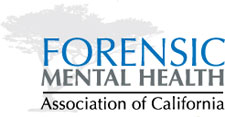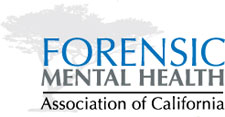LEGAL AND ETHICAL CONSIDERATIONS: WORKING WITH FORENSICALLY INVOLVED INDIVIDUALS
Date & Time
January 9, 2023
9:00am - 4:30pm
Location
Virtual
January 9, 2023
9:00am - 4:30pm
Location
Virtual
Handouts
|
|
|
| ||||||||
Summary
The main goal of this training is twofold: enhance forensic mental health professionals’ ability to identify and analyze the various legal, ethical and risk management issues that arise when working with justice-involved individuals; and, thus, appreciate the skills needed to implement effective problem solving and decision making accordingly. This training will be guided by the laws, regulations and ethical standards underlying today’s mental health professionals—with an emphasis on how they impact the more challenging practice of working with forensic populations in California, including contemporary standards of care and best practices. It will focus on topics such as informed consent, HIPAA/ePHI, limits of confidentiality, reporting requirements, managing privileged communication within the legal system and the inherent conflict between the best interests of the “client” versus community safety. Case examples and interactive exercises will be utilized to highlight the practical application of these topics while looking at how the digital age, cultural competence and high-risk clients impact our ethical decision making. Additional topics will include professional integrity and competence, multiple roles and the part we play when working with forensically involved individuals.
Presented By

Melinda Wolbransky, JD, PhD
Melinda Wolbransky is a licensed attorney and clinical and forensic psychologist in Los Angeles, California where she is the Director of Evaluations for Gateways Hospital and Mental Health Center’s Conditional Release Program (CONREP). In this role, she oversees all individuals committed to a locked hospital setting under various Penal Codes (i.e., PC 1026, PC 2962 and PC 2972) in Los Angeles and San Diego Counties. Specifically, her unit provides routine evaluations as well as comprehensive court reports with a focus on suitability for release to a lower level of care and readiness for unconditional release from forensic treatment and supervision, as well as expert witness testimony, court liaison services and placement evaluations for all individuals found incompetent to stand trial on felony allegations in Los Angeles County. Melinda has also taught various psychology and law, general psychology and criminal justice classes at different universities, including John Jay College of Criminal Justice, Drexel University and the Florida Institute of Technology. She specializes in online teaching formats, having spent the last eight years modifying course content and related experiential activities to an online setting and has co-written a book for others teaching psychology and law.
Melinda Wolbransky is a licensed attorney and clinical and forensic psychologist in Los Angeles, California where she is the Director of Evaluations for Gateways Hospital and Mental Health Center’s Conditional Release Program (CONREP). In this role, she oversees all individuals committed to a locked hospital setting under various Penal Codes (i.e., PC 1026, PC 2962 and PC 2972) in Los Angeles and San Diego Counties. Specifically, her unit provides routine evaluations as well as comprehensive court reports with a focus on suitability for release to a lower level of care and readiness for unconditional release from forensic treatment and supervision, as well as expert witness testimony, court liaison services and placement evaluations for all individuals found incompetent to stand trial on felony allegations in Los Angeles County. Melinda has also taught various psychology and law, general psychology and criminal justice classes at different universities, including John Jay College of Criminal Justice, Drexel University and the Florida Institute of Technology. She specializes in online teaching formats, having spent the last eight years modifying course content and related experiential activities to an online setting and has co-written a book for others teaching psychology and law.
Learning Objectives
- Recognize three current federal and state laws, legislature and regulations that impact forensic mental health professionals in California
- Explain how issues of confidentiality and client privilege impact workplace documentation
- Identify three exceptions to confidentiality and how to manage the necessary communication required
- Discuss standards of practice as they relate to professional accountability and core competencies
- Explain two culturally sensitive ethical approaches to working with clients from diverse populations
- Apply risk management framework to legal and ethical challenges specifically presented by forensically involved clients
CE Credit |
Intended Audience |
Experience Level |
|
5 CE Available for CPA, BBS, BRN
Additional Continuing Education Information |
This training is intended for mental health clinicians.
|
This training is appropriate for all level clinicians.
|

